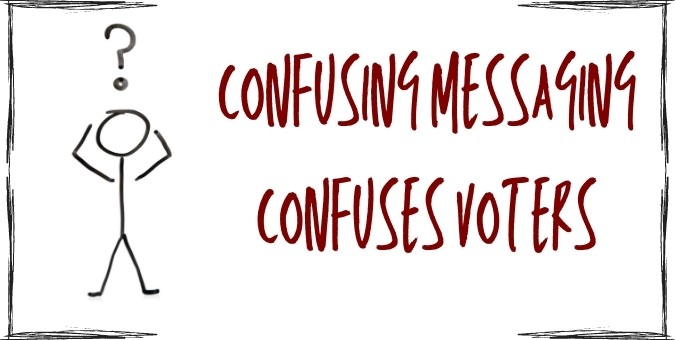The old KISS principle means keep it simple, stupid. It basically means that things work best if they are kept simple rather than complicated.
The principle works in design. It works in systems. And the KISS principle works in politics.
A winning campaign message resonates with voters. Successful politicians boil their messaging down to the most basic elements.
There may be several important issues facing your district. It doesn’t matter if it’s economic situations, social policies, or how the local government is managed.
Your primary focus should be on issues that a majority of voters feel strongly about. If there is a specific problem or two that frustrates voters of all types, then those are the issues you should narrow in on. You may have a lot of ideas for your community, but if you try to explain everything you want to do to voters, you will not be able to hold their attention.
Your messaging needs to be on point. Boil down each problem to its’ essence. You may even be able to translate a relevant issue into a single sentence, phrase, or even a slogan.
But that solves only half the problem. Your solutions need to be equally elegant. Narrow down your fixes to a few specific points per issue. Make those points address the pain or frustration that your voter experiences. Show them what distinguishes you from your opponent.
“The single biggest problem in communication is the illusion that it has taken place.” – George Bernard Shaw
In reality, issues and answers are far more complex and nuanced. You may have detailed outlines that address a variety of issues. Save those complicated plans for elsewhere. Keep them away from your campaign material.
When communicating with voters, maintain the KISS principle. You can only maintain a voter’s attention by being simple and direct. Even if your topic or solution is complicated, figure out a way to make it easy to understand.
Avoid using weak terms like “vision,” “pledge,” or “optimism” that sound good but mean little. Your words should be specific enough to describe your desire and plans for change.
Offer a clear promise of what you plan to accomplish in office. If you get lost in detail and minutia, you will lose a voter’s attention.
In your campaign literature and website, you should:
- Explain your primary issues and solutions clearly.
- Use subheadings and bullet points.
- Use pull quotes that distill your positions and solutions.
Sometimes we see clients turn the issue pages of their candidate website into a massive, detail-laden policy creeds. We’ve seen clients who put a tremendous amount work writing out every aspect of their issues, their reasoning, and what they plan to do. Often this reads more as stream-of-consciousnesses than a real political platform.
While you don’t have space limitations online, if you write too much, most voters will see a wall of text and simply move on. Make you content easily understood and digestible with short paragraphs, bullet points, and clear sections. Use the opportunity to tell a story that interests and engages voters. This principle also applies to your print material.
Make your message about the voters and what you, as an elected candidate, can do for them. Confusing communication damages the credibility of both the candidate and their campaign.
Keep it simple, and voters will know exactly where you stand.
That’s how effective candidates win elections!
« Sheriff Campaign Logo DesignA List of Our Best Judicial Campaign Slogans »
Tags: messaging







